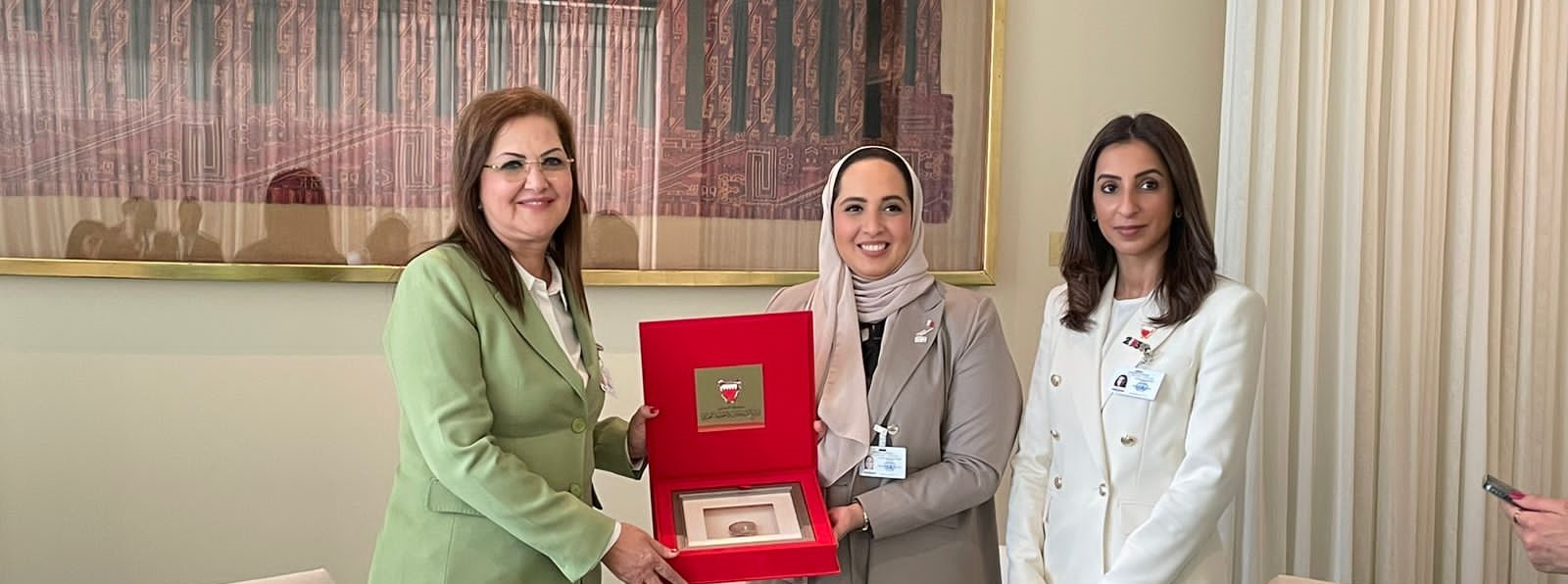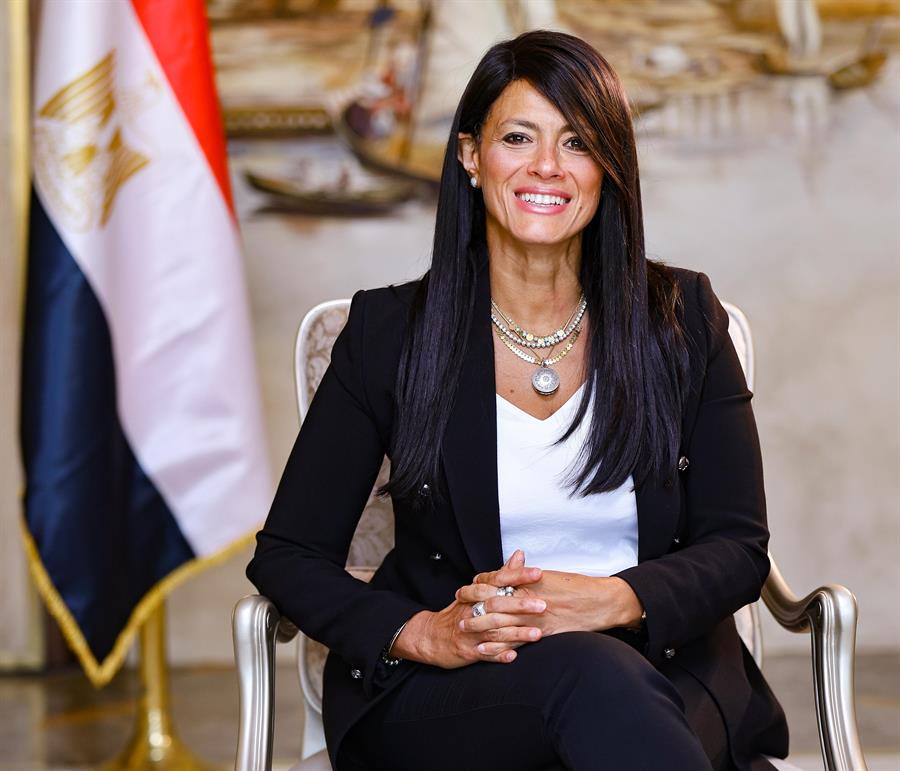During HLPF 2023 activities in NY…Egypt’s Planning Minister discusses cooperation with Bahrain's Minister of Sustainable Development and Minister of Housing

18 July 2023
H.E. Dr. Hala El-Said, Minister of Planning and Economic Development, met with Ms. Noor Al-Khalif, Minister of Sustainable Development in the Kingdom of Bahrain, and Ms. Amna bint Ahmed Al-Rumaihi, Minister of Housing and Urban Planning in Bahrain, to discuss joint cooperation.
This was on the sidelines of the High-Level Political Forum for Sustainable Development (HLPF) 2023, which was held in New York from 10-19 July under the slogan "Accelerating recovery from Covid-19 and fully implementing the 2030 Agenda for Sustainable Development at all levels."
During the meeting, Dr. Hala El-Said stressed that the political and economic relations between Egypt and the brotherly Kingdom of Bahrain are historic, extended, and growing, especially in light of the constant interest in these relations from the political leadership in the two countries, headed by President Abdel Fattah Al-Sisi and His Majesty King Hamad bin Isa.
During the meeting, El-Said reviewed the Egyptian experience in submitting voluntary national review reports on the progress made to achieve sustainable development goals at the national and local levels. She also reviewed the process of preparing voluntary reports.
The Minister of Planning and Economic Development also referred to Egypt's experience with social housing and Bahrain's possibility of benefiting.
On unified databases, Dr. Hala El-Said stressed the importance of relying on cooperative databases and analyzing them accurately, allowing the decision-maker to take appropriate measures and procedures, referring to Egypt's experience in standardizing databases and their importance in the planning and targeting process.
The Minister of Sustainable Development of Bahrain expressed her aspiration to visit Egypt and discuss joint cooperation.









